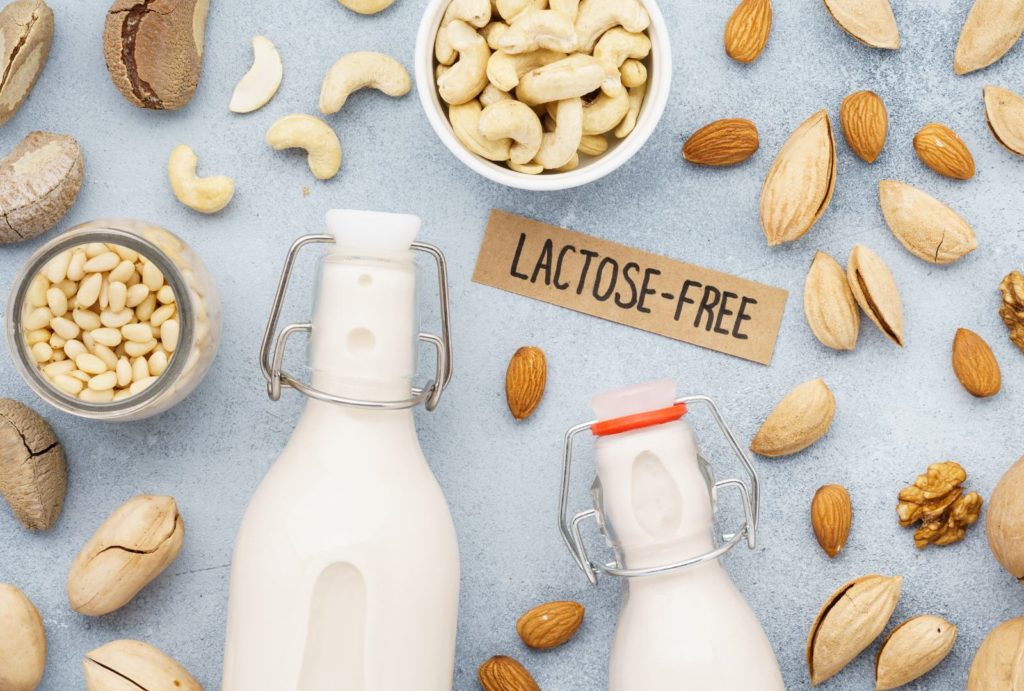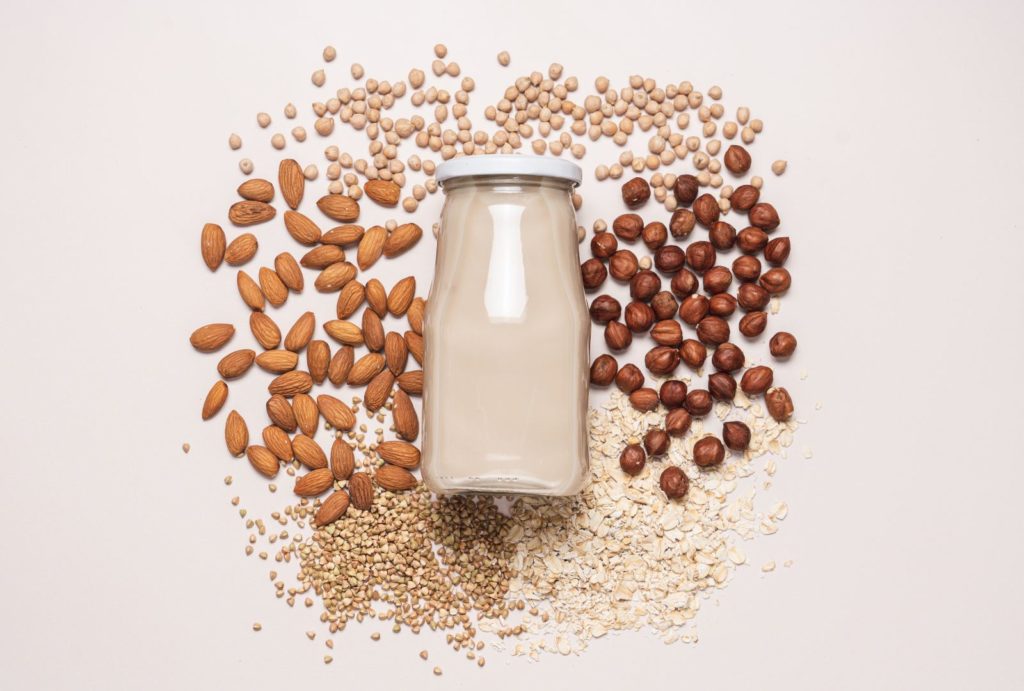We often hear the term lactose-free, but what does it really mean? And does it automatically mean cutting out all dairy for good? Not necessarily.
If you’ve ever felt bloated, crampy, or uncomfortable after a glass of milk, you may have assumed that dairy simply “doesn’t suit you.” In reality, your body might just be struggling with lactose, the natural sugar found in milk.

What Actually Happens When You’re “Lactose Intolerant”
Lactose itself isn’t the problem — the issue lies in how we process it. To digest lactose, your small intestine needs an enzyme called lactase.
When lactase levels are low (which is very common in adults), lactose passes through the gut undigested. Once it reaches the colon, it ferments — and that’s when you get gas, bloating, cramps, or even diarrhea.
This doesn’t mean your digestive system is broken. It just means it needs a little support and awareness.
Interestingly, many people still produce some lactase, just not enough to handle large amounts of milk at once. That’s why small quantities of certain dairy foods are often well tolerated.
Not All Dairy Is Equal
Here’s the part most people don’t realize: not all dairy is high in lactose.
Fermented or aged dairy products, for example, naturally contain very little lactose because the bacteria or enzymes used during processing have already broken it down.
So while a glass of milk might cause discomfort, a small piece of cheese or a spoonful of yogurt may be completely fine.
Let’s look at a few examples.
5 Naturally Low-Lactose Dairy Foods
- Butter – Almost lactose-free, with only about 0.1 g per 100 g. Unless you’re very sensitive, butter is usually well tolerated.
- Hard cheeses – Aged cheeses like Cheddar, Parmesan, and Swiss lose most of their lactose during aging.
- Probiotic yogurt – The live cultures actually help digest lactose for you. Win-win!
- Whey protein isolate – Unlike whey concentrate, isolates are filtered to remove nearly all lactose.
- Kefir – A fermented milk drink that contains beneficial bacteria and yeasts. It’s often well tolerated even by those who can’t drink regular milk.
The key is to start small and observe. Everyone’s threshold is different, and your gut may handle one food beautifully and another less so.
What About Lactose-Free Milk?
You’ve probably seen cartons labeled lactose-free in the supermarket. This doesn’t mean the milk is artificial or stripped of nutrients — quite the opposite.
Manufacturers simply add the lactase enzyme to regular milk, which pre-digests the lactose. This breaks it down into simpler sugars (glucose and galactose), making it easier to absorb — and giving it that slightly sweeter taste you might have noticed.
So if you love the taste of milk in your coffee but not the after-effects, lactose-free milk can be a great compromise.

Casein vs. Lactose — Two Different Things
There’s a lot of confusion between lactose intolerance and milk protein allergy.
- Lactose is the sugar in milk.
- Casein is the protein in milk.
If your issue is casein sensitivity or allergy, then lactose-free products won’t make a difference — because they still contain milk protein.
In that case, you might feel better with plant-based alternatives like almond, oat, or soy milk.
Your Gut Might Help More Than You Think
Here’s a fascinating twist: Some of your gut bacteria can actually produce lactase themselves.
That means your gut microbiome plays a role in how well you tolerate dairy.
Supporting your gut health — with fiber-rich foods, probiotics, fermented products like kefir or sauerkraut, and diverse plant foods — may naturally improve your ability to handle lactose over time.
In other words, it’s not just about avoiding foods — it’s about building resilience in your digestive system.
The Takeaway
Lactose intolerance doesn’t have to mean a life without dairy. It’s about knowing your limits, making small adjustments, and choosing foods that your body can handle comfortably.
Here’s how to start:
- Choose fermented or aged dairy first.
- Eat small amounts and observe your body’s response.
- Read labels — lactose hides in soups, sauces, and even supplements.
- Focus on gut health to support digestion naturally.
Your relationship with dairy can be flexible — and yes, even enjoyable again. Sometimes, it just takes a little understanding of how your body works.



